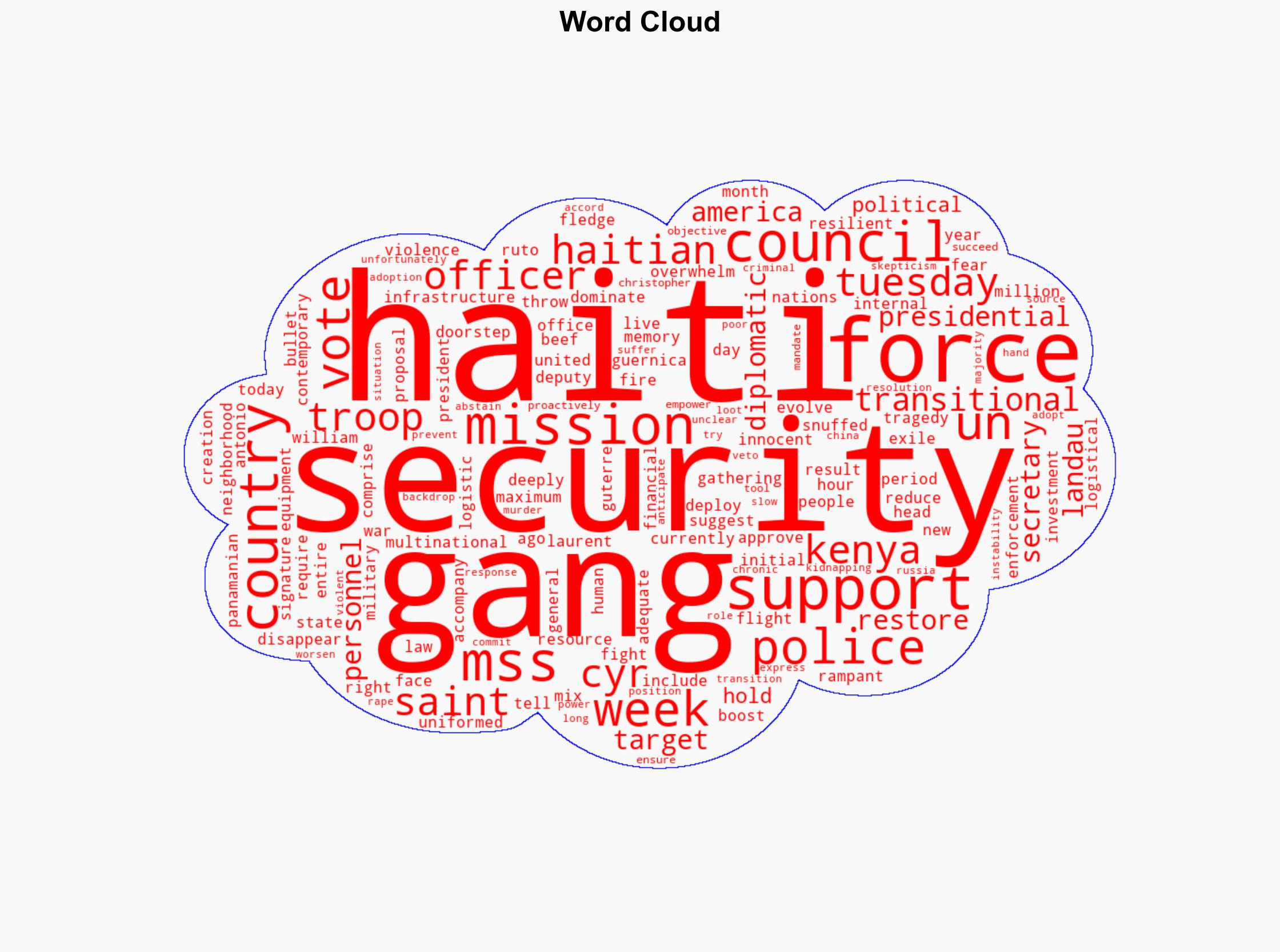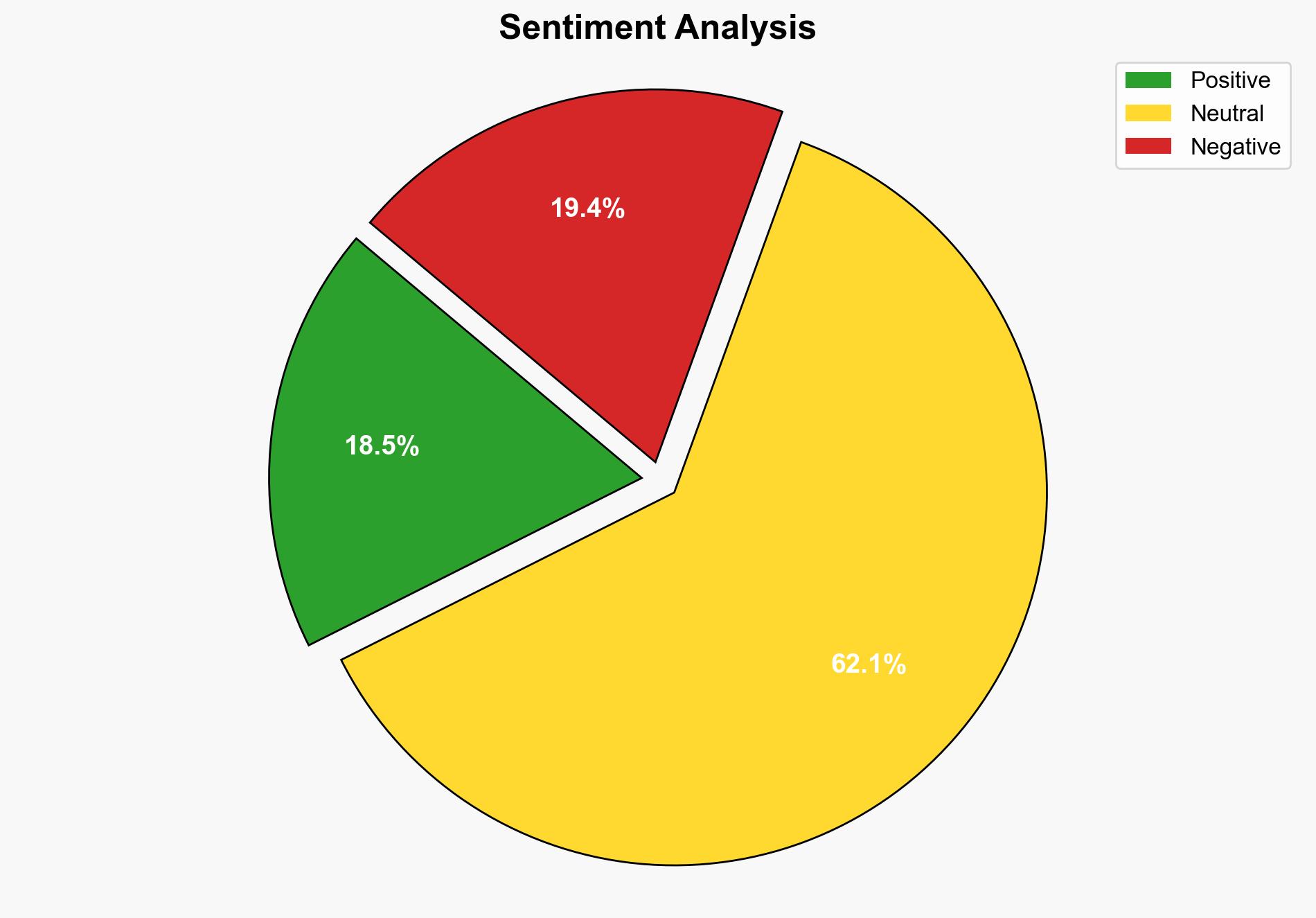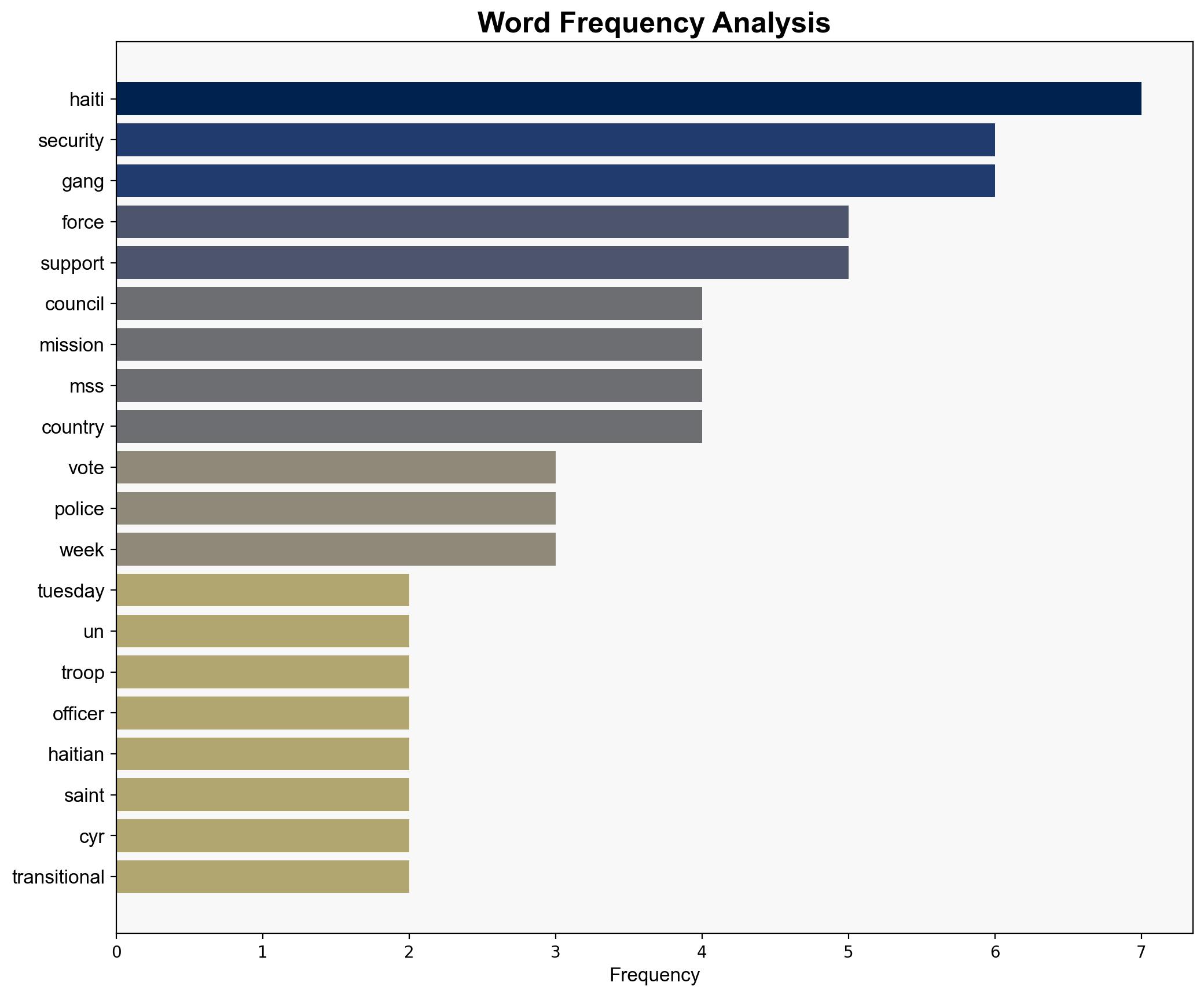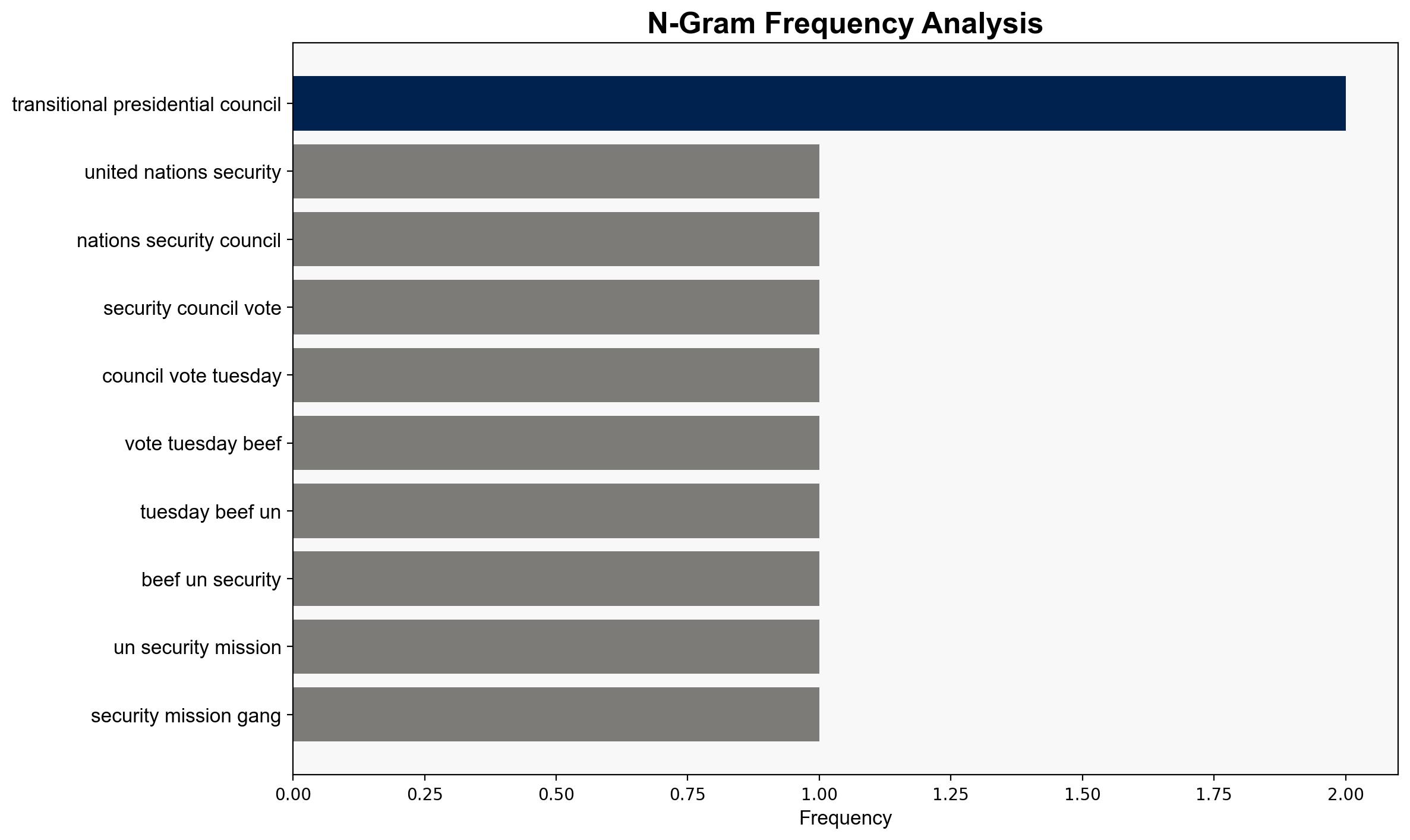UN Security Council To Vote On Future Of Foreign Haiti Force – International Business Times
Published on: 2025-09-30
Intelligence Report: UN Security Council To Vote On Future Of Foreign Haiti Force – International Business Times
1. BLUF (Bottom Line Up Front)
The UN Security Council’s decision on the deployment of a multinational security force in Haiti is pivotal for stabilizing the region. The most supported hypothesis suggests that the mission will be approved but face significant operational challenges due to political skepticism and resource constraints. Confidence level: Moderate. Recommended action: Engage in diplomatic efforts to ensure broad international support and secure adequate resources for the mission’s success.
2. Competing Hypotheses
1. **Hypothesis A**: The UN Security Council will approve the multinational security mission, leading to a temporary stabilization in Haiti but facing operational challenges due to limited resources and political skepticism.
2. **Hypothesis B**: The UN Security Council will fail to approve the mission due to political divisions, resulting in continued instability and worsening humanitarian conditions in Haiti.
Using ACH 2.0, Hypothesis A is more supported as there is a strong push from key stakeholders like Kenya and Panama, and a recognition of the urgent need for intervention. However, skepticism from China and Russia introduces uncertainty.
3. Key Assumptions and Red Flags
– **Assumptions**: The mission will receive adequate logistical and financial support; the presence of foreign troops will not exacerbate local tensions.
– **Red Flags**: China’s skepticism and Russia’s unclear position could lead to vetoes; the mission’s success heavily depends on international cooperation and resource allocation.
– **Blind Spots**: Potential local resistance to foreign intervention and the impact of political transitions in Haiti are not fully addressed.
4. Implications and Strategic Risks
– **Cascading Threats**: Failure to stabilize Haiti could lead to increased migration pressures and regional instability.
– **Geopolitical Risks**: Divergent interests among Security Council members may weaken the UN’s ability to act effectively.
– **Psychological Dimensions**: The perception of foreign intervention could influence public opinion and political dynamics within Haiti.
5. Recommendations and Outlook
- Engage in diplomatic efforts to address concerns of skeptical Security Council members, particularly China and Russia.
- Secure commitments for logistical and financial support from international partners.
- Scenario Projections:
- Best Case: Successful deployment leads to stabilization and improved security conditions.
- Worst Case: Mission failure due to lack of support and exacerbation of local tensions.
- Most Likely: Partial success with ongoing challenges in resource allocation and political support.
6. Key Individuals and Entities
– Laurent Saint-Cyr
– William Ruto
– Antonio Guterres
– Christopher Landau
7. Thematic Tags
national security threats, regional focus, geopolitical dynamics, international diplomacy




